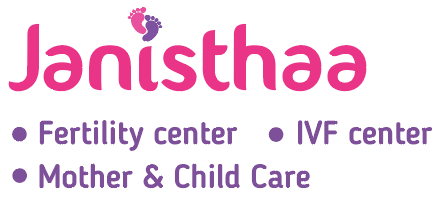Embryo transfer is one of the most crucial steps in the IVF treatment journey. It is where the fertilized embryo is transferred to the mother’s uterus. The uterus is made ready to make implantation happen. The right hormonal conditions are achieved through medication to make the embryo transfer and consequent implantation successful.However, many external conditions also affect the success of embryo transfer. One such factor is the sleeping posture one takes after embryo transfer. This article looks at everything you need to know about sleeping posture after embryo transfer.
How Does the Sleeping Position Affect the Success of Embryo Transfer?
At every stage of life, sleep is essential. This is especially so during the IVF treatment period. Doctors recommend 7-8 hours of sleep to remain healthy and have a successful IVF treatment in Bangalore . But does how you sleep affect the outcome of the journey? Especially during the embryo transfer stage?
Sleeping in ways that can add weight to your pelvic area can be detrimental to the success of your procedure. This adds pressure to your body and can be counterproductive. Sleeping on your stomach is one example. Placing heating objects or objects with weight on your body can affect you. Other than these minor precautions, there is not much a doctor would tell you regarding sleeping positions after embryo transfer.
Is bed rest necessary after Embryo Transfer?
No. Bed rest is not generally prescribed for a person after embryo transfer. A normal, healthy person is told to have a healthy, uninterrupted sleep of about 7-8 hours to maintain good health. This increases the overall mood and hormone balance of a person.
However, if the person who has had the embryo transfer is in a high-risk category, they may be suggested to remain in bed for a couple of days. If there are previous instances of implantation failure, they may be suggested to make less physical movement and preferably take a day or two of rest. Taking a break from daily activities and work can help with the process. With better rest, there is a significant chance of successful uterine implantation.
What are the Best Sleeping Positions after Embryo Transfer to Increase Success Rate
As discussed above, good sleep is necessary to help the process of relaxing the body and enabling good conditions for proper hormonal balance and stress control. However, the quality of your sleep is also affected by your sleeping position.
Sleeping positions also affect the success rate of your embryo rate.
Some of the best sleeping positions after the embryo transfer are as follows:
● Sleeping on your back:
This is one of the safest positions to adopt when you sleep. It can also be very comfortable for most people and give them a good night’s sleep. You can also use small pillows to support your lower back. This sleeping position is in the first trimester of your pregnancy as well. However, it is suggested that you sleep on your side from the second trimester.
● Sleeping on your side:
Sleeping on your side gives very comfortable sleep. However, you can use specialised pillows like the C-pillow or the U-pillow to make your sleep more comfortable. This is a safe position to sleep in if you have had the embryo transferred.
Sleeping Positions to Avoid After Embryo Transfer
Generally, all positions, except sleeping on your stomach, is safe after an embryo transfred. Here is why.
You should not sleep on your stomach when you have just had an embryo transfer. When you sleep on your stomach, there is the weight and pressure of your body on your uterus. This can lead to unwanted complications.
Summing Up
A good night’s sleep and your position can contribute to your IVF journey’s success. Jaanistha IVF and Fertility Centre doctors suggest sleeping on your side or back right after the embryo and avoiding sleeping on your stomach. You must keep these things in mind when you have had an embryo transfer.
Janistha IVF and Fertility Center provides expert services in assisted pregnancy and infertility treatments. Our expertise and commitment towards patients make us one of the best Bangalore IVF hospitals. With Jaanistha, your IVF journey is a pleasant ride as we ensure we take you through each step of the process with care and that you are informed of all the risks and precautions you need to take. Reach out to us today for a free consultation.

